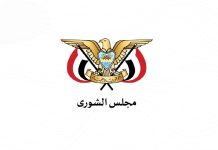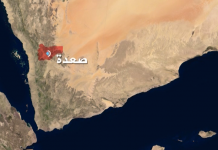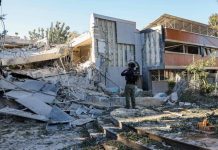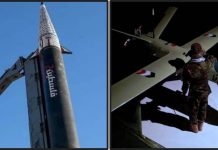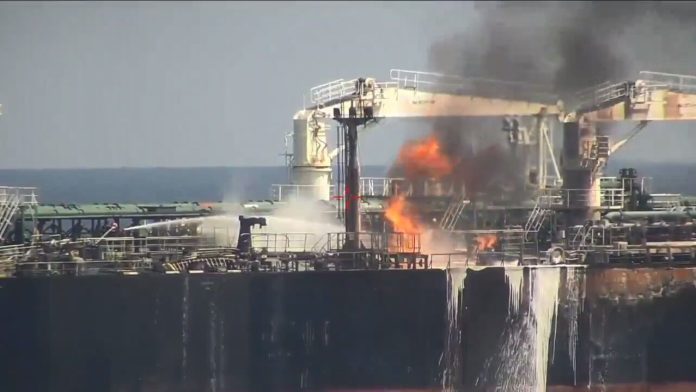The captain of the British ship “Marilyn Luanda”, which was targeted by the Yemeni army on January 26, 2024 in the Gulf of Aden with sea missiles, said that the ship burned for about 20 hours after being hit by a ballistic missile targeting a tank containing oil, indicating that the ship was threatened with complete burning if the fire reached the rest of the tanks.
Bloomberg published a report on Wednesday about the ship’s targeting after 10 months of the operation announced by the Yemeni army on January 26. In the report, Avilash Rawat, the captain of the ship said that the operation led to the burning of the ship, as documented by the video scenes that spread widely.
Extensive damage
The report quoted Rawat as saying that he had just finished eating his dinner when an anti-ship ballistic missile hit the oil tanker of the ship, adding: “The whole ship shook, I stopped walking and started running,” adding that after the attack, “a hole of about five square meters appeared on the deck of the tanker, and the fire was burning, and Rawat had no idea whether another strike would follow or not.”
According to the report, “the missile ruptured the top of a cargo tank containing naphtha, and this oil was burning. In total, the tanker (Marlin Luanda) was carrying about 700,000 barrels of petroleum product, which is used in the manufacture of gasoline and plastics,” and he continued: “If the fire had spread to the adjacent tanks, the entire ship could have been set ablaze.”
The report indicated that the ship’s captain “issued a distress call, and began slowing his ship and steering it so that the wind would push the flames, which had reached a height of more than 10 to 15 meters, towards a safer direction,” noting that “the fire was fought with an inert gas and foam system, but the latter quickly ran out.”
The report quoted Rawat as saying that the crew “continued to fight the fire with sea water, and were assisted by French and American frigates, but the fire continued to rage.”
According to the report, “Rawat was in contact with the company that hired the ship’s crew (the Marlin Luanda) as well as the owner of the cargo, the giant commodities trading company Trafigura Group, and was told that he could abandon his ship, but he did not.”
20 Hours Fire
“As the fire continued, and Rawat and his crew remained on board, the Indian Navy arrived at the scene, and eventually, with the help of the Indian Navy, a huge metal plate, equipped with chains, was pulled over the burning cargo tank, depriving the fire of oxygen, and more foam and seawater were used. Eventually, the fire was extinguished,” the report explained.
“The ship burned for about 20 hours,” noting that its captain remained awake for 36 hours.
The report quoted Rawat as saying: “I forgot that a human being needs sleep. It was very scary, honestly. If I close my eyes, I can see the fire in the back of my mind.”
According to the agency, this attack was “one of the most prominent incidents in the Yemeni military operations that began late last year and show no signs of stopping, as the Yemeni army began pursuing ships with any connection to “Israel” before expanding its targets to include ships linked to Britain and America.
The captain of the burning British ship, Avilas Rawat, appeared in a video on January 26 after the ship was targeted, confirming that the ship was burned by a Yemeni missile and that the fire was not small but huge. He warned of the fire spreading to other tanks on the ship.



